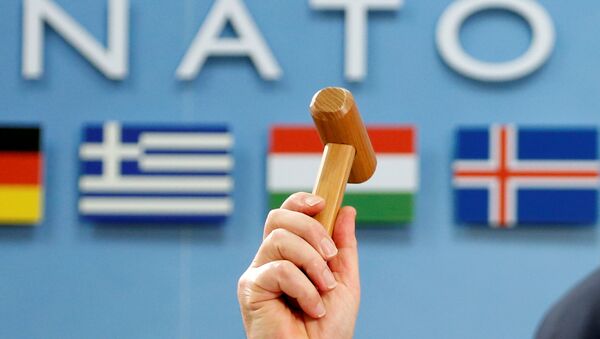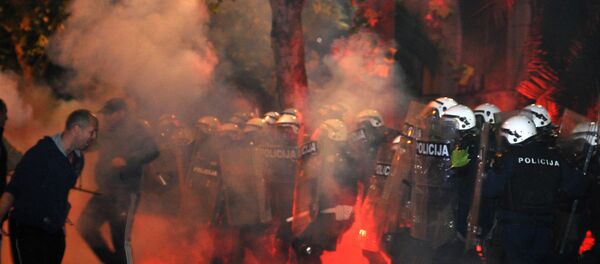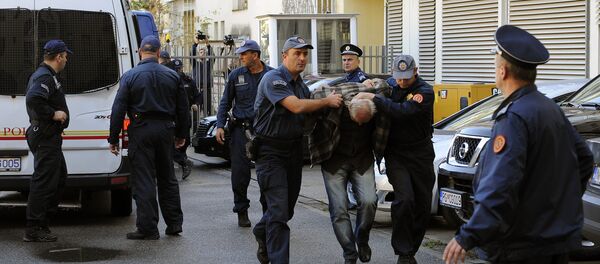MOSCOW (Sputnik) — On October 16, 2015, on the parliamentary elections day in Montenegro, 20 people were detained and 14 of them arrested for planning to conduct attacks targeting both civilian population and high-ranking statesmen and to seize the parliament's building. In November, a Montenegrin prosecutor was quoted by the media as alleging that "nationalists from Russia" planned to overthrow a government.
"We have seen the failed coup attempt last fall and the fact that Russian citizens were involved in that attempt. But for me, this is not an argument against Montenegro joining NATO. For me, this is an argument in favor… It is a sovereign right of every nation to… decide which path it wants to choose, including what kind of security arrangements they want to be part of," Stoltenberg said at a press conference.
In December 2016, Montenegro put two Russian nationals — Vladimir Popov and Eduard Shirokov — and several Serbian nationals on the Interpol wanted list on suspicion of plotting the coup. The special prosecutor's office said it suspected Shirokov of planning the assassination of Montenegrin Prime Minister Milo Djukanovic. According to media reports, the majority of the detainees have admitted their guilt in planning the coup. In February, The Telegraph newspaper reported that senior sources in the UK government suspected Russian intelligence of plotting the coup in Montenegro and the assassination of Djukanovic.
Moscow has refuted the accusations, with Kremlin spokesman Dmitry Peskov calling them unsubstantiated and irresponsible. Russian Foreign Ministry spokeswoman Maria Zakharova said the accusations of Russia's alleged involvement were baseless.
Montenegro was invited to NATO in December 2015. In May 2016, NATO member states signed a protocol on Montenegro's accession to the alliance, which gives it the status of an observer at NATO meetings. To become a full-fledged bloc's partner, all 28 NATO countries must ratify the accession protocol to include the new member.



